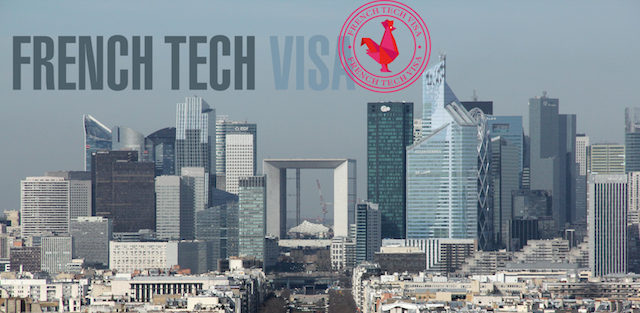French “angel investor visa” could be serious contender to Southern Europe’s golden visas
A EUR 300,000 passive investment in a French startup will get applicants and their families a 4-year visa that can be renewed as long the investment is maintained. After five years of continuous residence in France – or, indeed, in any EU country, as per EU rules – applicants are eligible for permanent residence. A year after obtaining permanent residence, applicants may apply for citizenship, provided they have obtained proficiency in the French language over the preceding 5-6 year period.
What is the French Tech Visa?
France recently launched a series of immigration initiatives designed to attract skilled professionals and entrepreneurs, collectively dubbed the French Tech Visa or, alternatively, the Talent Passport. What’s interesting to those of us working in the investment migration industry is the subcategory called “Business Investor”. To qualify, applicants must meet the following criteria:
- Invest at least €300,000 in fixed tangible or intangible assets.
- Invest either directly or via a company in which they have at least a 30% shareholding.
- Own at least 10% of the company in which they are investing.
- Create or protect (or commit to create or protect) jobs within the four years following the investment.
The spouse and dependents of the investor may also be included in the application and may take up employment in France. The application fees are just EUR 269 for the spouse and EUR99 per dependent. For the main applicant, processing fees and related taxes amount to about EUR 600.
Who is it for?
To be sure, this program will not suit investors who don’t intend to physically reside in France, but the investment can be completely passive and there’s a decent chance of serious returns. Of course, we’re talking about high-risk venture capital/angel funding of startups here, so there’s also a chance you’ll never see those EUR 300,000 again but, who’s to say your money isn’t equally at risk in Portuguese property or Cypriot bonds?
Here’s a hypothetical scenario:
A Chinese family wants to immigrate to France. Let’s say the father is the main breadwinner and wants to stay in China to tend to his business. The wife invests, on behalf of the family, EUR 300,000 in a French tech-startup. She doesn’t have any experience running a company, nor does she know anything about robotics or fintech, but that doesn’t matter because the investment is completely passive. She enrolls her children in a French school (at local rates) and rents an apartment in Paris. After four years, she either maintains her investment in the same company (which, by now, is either profitable, struggling or throwing in the towel) or shifts her investment to another company. Simultaneously, the family files for an extension of the visa of between one and four years.
After year five, the family members who have resided in France are all eligible for permanent residence. At this point, they may divest from the tech-startup if they wish. They may also choose to stay in France, but will not lose their PR status if they don’t.
Where to invest?
Bruno Marengo of Harris Corporate Solutions, based in the company’s Paris Office, tells Investment Migration Insider that the Macron government is currently developing a list of designated companies into which applicants may invest in order to qualify. In the meantime, prospective applicants may avail themselves of the services of a business immigration specialist to determine if a company in which they would like to invest would qualify.
How does the program compare to Europe’s golden visas?
France is a more attractive lifestyle destination than many of its Southern European counterparts but generally has a higher tax burden. The minimum investment requirement is similar to the Golden visas, but the risk/return potential is higher. Processing times are comparable, as is the path to naturalization. The French program compares favorably to the Malta RVP insofar as the investment requirement does not rise with the inclusion of additional dependents.
For more details on the program, please visit the program’s official website.
Christian Henrik Nesheim is the founder and editor of Investment Migration Insider, the #1 magazine – online or offline – for residency and citizenship by investment. He is an internationally recognized expert, speaker, documentary producer, and writer on the subject of investment migration, whose work is cited in the Economist, Bloomberg, Fortune, Forbes, Newsweek, and Business Insider. Norwegian by birth, Christian has spent the last 16 years in the United States, China, Spain, and Portugal.



